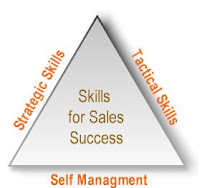
Power up your Presentation Skills – 10 Tips for Better Presenting
Presenting in front of an audience is not everyone's cup of tea but with the correct advice, guidelines and practice it can be enjoyable for both the presenter and the audience. Preparation is everything and it is essential that you know your subject matter. The more prepared you are, the more confident you will feel which makes for a better presentation.
Follow these simple tips and your presentations will be fun, interesting and rewarding for both you and your audience.
- Keep your PowerPoint visual – Keep them clean, not too wordy and relative to the presentation. They should just be a visual representation of the subject. The audience isn't there to read your slides; they are there to listen to you present.
- Engage with the audience - Make eye contact with everyone throughout the room. If you don't do this then you aren't engaging the audience, you are just talking to yourself. Each person should feel like you are speaking to them personally.
- Deliver with a passion – It's amazing how catchy enthusiasm is. If your voice is expressive and your gestures animated, you will appear confident and passionate.
- Make them laugh – Have some fun! Although you want to educate your audience, you need to make them laugh too. In essence, it keeps the audience alert and they'll learn more from you than someone who just educates.
- Ask questions - People hate it when they get talked at, so don't do it. You need to interact with your audience and create a conversation. The easiest way to do this is to ask them questions as well as letting them ask you questions.
- Be human –Simply be truthful to your audience. Telling the truth and being human will earn you respect and people will trust you for your honesty. Putting yourself on a pedestal and being super-human can work against you. So tell them how it is.
- Don't over prepare – Of course, you need to be prepared enough to know what you are going to talk about but just enough to make sure your presentation flows naturally and not sound memorized. Experienced speakers will tell you not to rehearse your presentation too much because then it won't sound natural.
- Show some movement – Keep yourself moving. People will stay engaged if you are animated. If you have a large audience or big stage make sure you spend an equal amount of time in front of all of your audience. Being animated also helps display a sense of passion too.
- Watch what you say - You may not notice when you say words like "uhm" or "ah", but the audience does. If you use them a lot when presenting it can get quite irritating; so much that some members of the audience will probably count how many times you say these useless words and tell you!
- Don't read directly from your notes – One of the most common mistakes made by first time speakers is to stand up and read directly from notes. If a speaker is looking down at a page of notes it does not allow them to engage eye contact with the audience to hold their interest. As alternative, bullet point key messages that you wish to get across on cue cards to keep you on track and it won't sound so scripted.




































